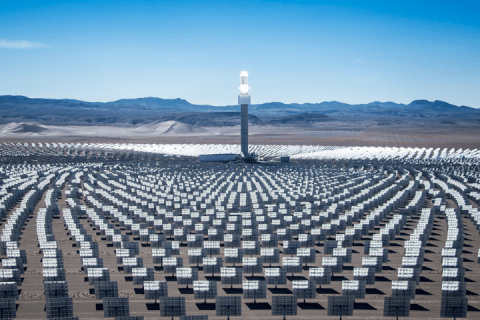
The Graham Sustainability Institute’s Carbon Neutrality Acceleration Program (CNAP) announced a series of projects chosen for an initial round of funding, each with dramatic potential to help reduce net carbon emissions.
In this funding round, seven 1-2 year projects totaling $1.75 million were chosen from among 37 proposed projects involving 105 U-M faculty and researchers. The projects selected address energy storage, carbon capture, and sequestration, public opinion, behavior, and equity.
One of the seven proposals selected was, “Evaluating Thermal Energy Storage for Deep Decarbonization.” The project team consists of Assistant Professor, Rohini Bala Chandran, Professor Don Siegel, of mechanical engineering (ME) along with Michael Craig from SEAS.
Their project summary is as follows:
For the first time in 50 years, low-carbon technologies have overtaken coal globally as the leading source of electricity. With the penetration of renewables continuing to increase, developing cost-effective, scalable, and duration-flexible energy storage is critical to balance energy supply and demand. Enter TES: thermal energy storage.
What makes TES so attractive is its combination of cost-effectiveness and flexibility. It has the potential to integrate electricity with heating/cooling applications that make up 90% of the world’s energy use. However, TES technologies are underexplored, underdeveloped, and yet to be commercialized. This team aims to accelerate the development and adoption of thermal energy storage by focusing on how the physical properties of materials and the heat-transfer performance of TES devices impact their revenues, costs, grid value, and emissions reduction potential.
This highly interdisciplinary project unites investigators who are experts across materials discovery, system design, and techno-economic and sustainability analyses. Co-PI Siegel will contribute background IP on TES materials, and use high-throughput screening and machine learning to further optimize performance. Drawing on these predictions, PI Bala Chandran will develop physics-based models and conduct experiments for heat- and mass-transfer mechanisms. These efforts will be coupled with full-system levelized cost and sustainability analyses performed by Co-PI Craig. The researchers’ cross-disciplinary collaboration will enable the team to identify the most advantageous TES applications and guide the development of materials and designs optimized for those applications.
This team received a $300,000 CNAP faculty research grant in 2021.